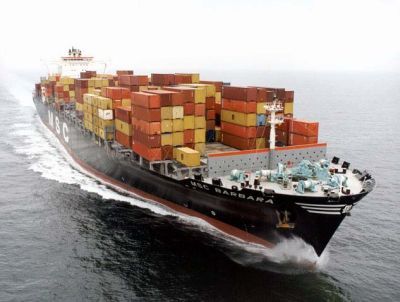Revitalizing Nigeria’s Maritime Sector: A Call for Comprehensive Port Reforms
Nigeria’s maritime sector, a crucial component of the nation’s economy, faces significant challenges that hinder its potential to contribute meaningfully to national development. Low cargo throughput, infrequent ship calls, persistent port congestion, inadequate revenue generation, suboptimal berth production, lengthy ship turnaround times, and overall inefficiencies plague the sector, demanding urgent and comprehensive reforms. The Sea Empowerment Research group, a prominent maritime advocacy organization, has put forth a compelling roadmap for revitalizing the sector, emphasizing the critical need for strategic interventions, public-private partnerships, and regulatory reforms.
Addressing Immediate Concerns and Long-Term Sustainability
The group’s recommendations begin with a call for a thorough assessment of the current state of Nigerian ports, identifying the root causes of the existing problems. This analysis should serve as the foundation for developing effective solutions, both in the short and long term. To address immediate concerns, such as congestion and poor berth production, the group recommends developing a short-term action plan that focuses on improving operational efficiency. This includes engaging with shipping lines and cargo owners to understand their specific needs and collaborating with them to devise solutions that enhance the efficiency and attractiveness of Nigerian ports. Concurrently, the government should embark on a long-term rehabilitation program aimed at modernizing port infrastructure and optimizing operations for sustained growth.
Diversification, Private Sector Participation, and Regulatory Reform
Beyond addressing immediate operational issues, the Sea Empowerment Research group emphasizes the importance of diversifying port operations. Developing new terminals, warehouses, and logistics facilities is crucial for expanding capacity, increasing cargo throughput, and maximizing revenue generation. This diversification strategy should be complemented by actively encouraging private sector participation in the rehabilitation and operation of ports through public-private partnerships or concessions. Leveraging private sector expertise, investment, and operational efficiency is essential for transforming Nigerian ports into world-class facilities. Furthermore, reviewing and updating the existing regulatory framework governing port operations is vital. A modern, efficient, and investment-friendly regulatory environment will attract both domestic and foreign investment, fostering sustainable growth within the maritime sector.
Monitoring, Evaluation, and Continuous Improvement
To ensure the success and sustainability of these rehabilitation efforts, the Sea Empowerment Research group recommends establishing a robust monitoring and evaluation system. This system should track progress, identify areas for improvement, and facilitate necessary adjustments throughout the rehabilitation process. Regular monitoring and evaluation will provide valuable insights into the effectiveness of implemented strategies, allowing for timely adjustments and course corrections to maximize impact. This continuous improvement approach is crucial for ensuring that the rehabilitation efforts achieve their intended objectives and contribute to the long-term viability of the maritime sector.
Empowering the Nigerian Port Authority and Promoting Competition
The group also highlights the crucial role of the Nigerian Port Authority (NPA) in driving port efficiency and fostering healthy competition within the sector. The NPA should be mandated to ensure that private terminal operators invest in appropriate and prioritized cargo-handling equipment, thereby enhancing operational efficiency and reducing port costs. Furthermore, the NPA, in collaboration with the relevant economic industry regulator, should actively promote competition among port operators, creating a dynamic environment that encourages innovation, efficiency gains, and improved service delivery.
Marketing, Promotion, and Enhancing Global Competitiveness
To fully realize the potential of Nigerian ports, the government must invest in strategic marketing and promotion efforts to attract new cargo and shipping lines. Showcasing the improved infrastructure, enhanced efficiency, and streamlined operations will attract international business and elevate the global image and reputation of Nigerian ports. By actively promoting the advantages of utilizing Nigerian ports, the government can position the nation as a competitive player in the global maritime landscape. This proactive marketing approach is essential for attracting foreign investment, increasing cargo volumes, and maximizing the economic benefits of a thriving maritime sector.
Conclusion: A Holistic Approach to Maritime Sector Transformation
The recommendations put forth by the Sea Empowerment Research group represent a comprehensive and integrated approach to revitalizing Nigeria’s maritime sector. By addressing immediate operational challenges, promoting diversification, fostering private sector participation, modernizing the regulatory framework, establishing a robust monitoring and evaluation system, empowering the NPA, and investing in strategic marketing and promotion, Nigeria can unlock the vast potential of its maritime sector and position it as a key driver of economic growth and development. The implementation of these recommendations requires a concerted effort from all stakeholders, including government agencies, private sector operators, and regulatory bodies, working together to create a vibrant and competitive maritime industry that contributes significantly to Nigeria’s economic prosperity.


